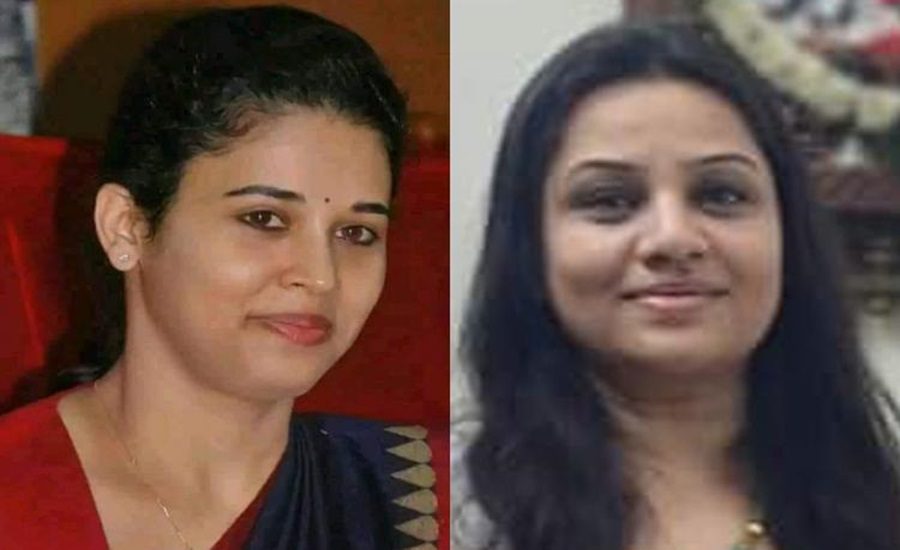The Supreme Court of India has today permitted IPS Officer D Roopa Moudgil (2009 batch) to withdraw her plea seeking to quash the criminal defamation case filed against her by IAS officer Rohini Sindhuri (2009 batch) [D Roopa v. Rohini Sindhuri]. A bench consisting of Justices Abhay S Oka, Ahsanuddin Amanullah, and Augustine George Masih allowed the withdrawal after learning that the countering parties were unable to settle and would proceed to trial.
During the previous hearings, the Court had granted time for both parties to explore the possibility of an amicable resolution. When the matter was called today, the Court asked the parties if they were still open to settling the dispute outside of court, emphasizing the potential harm prolonged litigation could cause to their careers as senior bureaucrats.
“We issued notice because we have two senior officers from the IPS and IAS fighting. We thought it would be better for both of you to resolve the issue amicably. Senior bureaucrats should spend more time in their work than in lawyers’ offices. This case, if it proceeds, could affect your careers,” remarked Justice Oka.
Senior Advocate Aditya Sondhi, representing IPS Moudgil, requested the Court to appoint a mediator to facilitate settlement. However, Senior Advocate Sidharth Luthra, representing IAS Sindhuri, rejected the suggestion, highlighting the severe damage caused to his client’s reputation.
“You need to look at the statement of objections. What they’ve said has harmed my client significantly. They’ve destroyed a family, put everything in the public domain, and now they talk about settlement?” Luthra argued.
Officer Rohini Sindhuri, who was present in court, also made it clear that she was not interested in mediation and wanted the case to be decided on its merits.
What is the dispute about?
The dispute began on February 18th last year, when Ms. Sindhuri found that Ms. Moudgil had made a series of Facebook posts accusing her of sharing private photographs with fellow IAS officers. This led to a public confrontation, prompting the Karnataka state government to transfer both officers.
In response, IAS Sindhuri sent a legal notice to Ms. Moudgil, demanding an unconditional apology and Rs. 1 crore in damages for the harm to her reputation and the mental distress caused. On March 24th, a Bengaluru court ordered the initiation of a criminal defamation case against Moudgil, who then approached the Karnataka High Court to quash the proceedings. However, the High Court dismissed her plea on August 21, prompting Moudgil to file an appeal in the Supreme Court.
During today’s hearing, the Court questioned Ms. Moudgil’s motives behind the social media posts targeting Sindhuri.
“How does your client (Moudgil) have any right to make such public posts? Were you involved in any investigation related to the allegations you made against the respondent (Sindhuri)? If you weren’t, then how can these posts not be considered defamatory?” the Court inquired.
Lawyer Sondhi argued that Moudgil was acting as a whistleblower, exposing what she believed to be wrongful acts by Ms. Sindhuri. Justice Amanullah, however, responded sceptically: “If you had a grievance with Sindhuri, why didn’t you raise it within the department as a concerned officer? Instead, you decided to go public with it. Isn’t that defamatory? You are fully aware of the criminal justice system, yet you chose to take this route,” Justice Amanullah remarked.
Despite the Court’s efforts to encourage an out-of-court resolution, Sondhi informed the judges that no settlement had been reached between the parties, and he would be withdrawing the plea. In light of this, the Court granted Moudgil permission to withdraw her application.
In a prior hearing on December 13th, 2023, the Supreme Court had suggested mediation given the high ranks of the parties involved. The next day, it urged Officer Moudgil to provide an undertaking that she would remove her social media posts about Sindhuri and issue an apology to resolve the matter. On December 15th, the Court also issued an interim stay on the matter and directed both officers to refrain from speaking to the media, again recommending mediation.





























